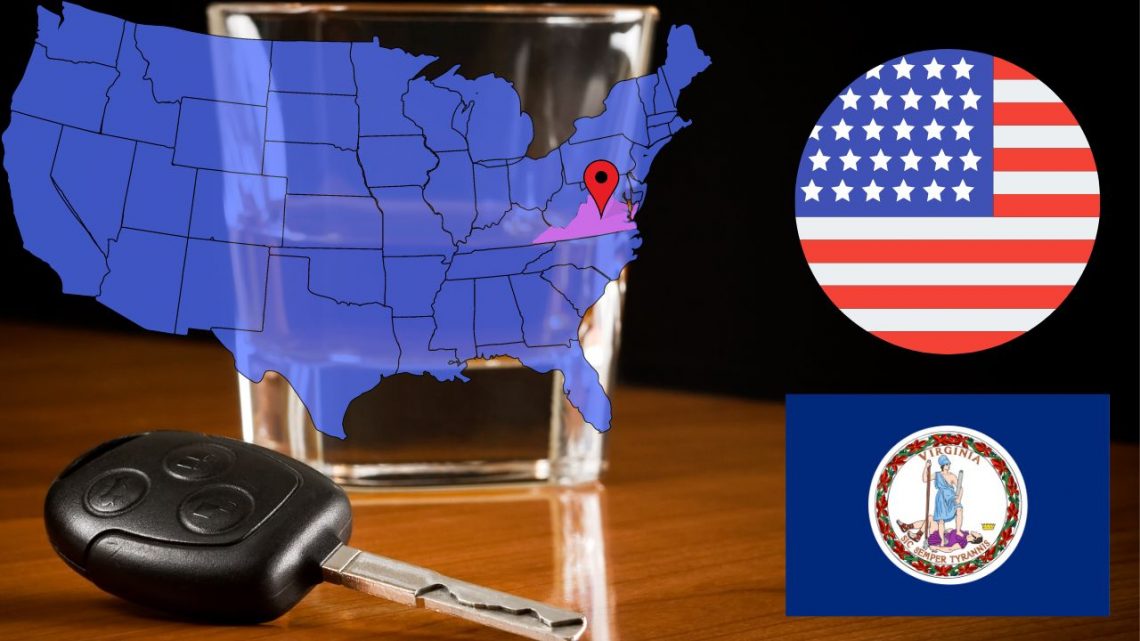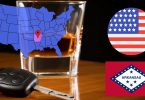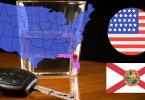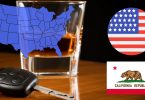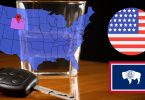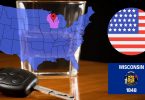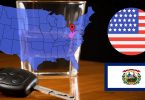In Virginia, the maximum permissible blood alcohol content (BAC) is set at 0.08%, equivalent to 80 milligrams of alcohol per 100 milliliters of blood.
What is the legal alcohol limit for driving in Virginia?
In Virginia, the legal alcohol limit for driving varies depending on the driver’s category. The state enforces specific blood alcohol content (BAC) limits to ensure the safety of all road users. Here’s a breakdown by driver’s category:
- Regular Drivers: The legal BAC limit is 0.08%. This applies to most private vehicle drivers.
- Commercial Drivers: For those holding a commercial driver’s license, the legal limit is lower, at 0.04%, reflecting the higher standards expected due to the nature of their vehicle operation.
- Minors (Under 21): Virginia maintains a zero-tolerance policy for underage drinking and driving. It is illegal for minors to operate a vehicle with any detectable amount of alcohol in their system.
Drink and Drive Penalties and Punishments in Virginia
In Virginia, the consequences for driving under the influence (DUI) or refusing a breath test are severe and aim to deter such dangerous behavior on the roads. The state imposes a tiered system of penalties depending on the nature of the offense and the offender’s history. It’s crucial for drivers in Virginia to understand these penalties and to check the official state website regularly for the most current information. Here’s a summary of what you can expect if you’re caught drinking and driving or refusing a breath test in Virginia:
- First DUI Offense and/or Breath Test Refusal:
- Automatic suspension of your driver’s license for seven days if your BAC is 0.08% or higher.
- Second DUI Offense and/or Breath Test Refusal:
- Automatic suspension of your license for 60 days or until trial, whichever comes first.
- Third DUI Offense and/or Breath Test Refusal:
- License automatically suspended until the trial.
- Conviction for DUI:
- Suspension of driver’s license and additional penalties beyond the administrative suspension.
- Breath or Blood Test Refusal:
- First refusal leads to a one-year license suspension by the court.
- Second refusal results in a three-year suspension and is classified as a Class 1 misdemeanor.
- Penalties for DUI Convictions:
- First Offense: Minimum $250 fine and one-year license revocation.
- Second Offense: Minimum $500 fine, three-year license revocation, and possible jail time up to one year.
- If within ten years of the first offense, adds a minimum ten-day jail term.
- If within five years, adds a minimum 20-day jail term.
- Three Convictions Within Ten Years: Indefinite driver’s license revocation.
- Third Offense or DWI Felony: Minimum $1,000 fine, indefinite license revocation, and prosecution as a Class 6 felony.
- Additional penalties for offenses within five or ten years, including jail terms and vehicle forfeiture.
- Fourth or Subsequent Offense: Minimum one-year jail term.
- BAC Levels: Additional jail terms for BAC of 0.15% to 0.20% or higher at the time of arrest.
- Driving on a Suspended License for DUI-Related Offenses: Class 6 felony for a third conviction within ten years.
- Additional Penalties for Minors and DUI Convictions Involving Juveniles:
- Stricter BAC limits for minors and specific penalties for DUI offenses involving juvenile passengers.
- Ignition Interlock Requirement:
- Mandated for certain offenses, with specifics depending on the nature of the offense and previous convictions.
The information above highlights the importance of adhering to DUI laws in Virginia. Penalties are designed to be progressively severe for repeat offenders and those with higher BAC levels at the time of arrest. To ensure you are up to date with the latest DUI laws and penalties, it’s advised to frequently check the official state’s website. This will help you stay informed about any changes or updates to the laws that could affect you.
How Can I Calculate if My Alcohol Blood Limit is Legal in Virginia?
In Virginia, as in many states, the legal alcohol limit for most drivers is a Blood Alcohol Content (BAC) of 0.08%. For commercial drivers, the limit is 0.04%, and for drivers under the age of 21, any detectable amount of alcohol is illegal. The primary method law enforcement uses to determine a driver’s BAC is through breath or blood tests. These tests are designed to measure the concentration of alcohol in your bloodstream and assess whether you’re over the legal limit.
If you’re concerned about staying within legal limits, there are ways to estimate your BAC before you make the decision to drive. As an experienced phlebotomist with a decade of experience, I recommend two methods for checking your BAC level:
- Use a High-Quality Alcohol Breathalyzer: One of the most reliable devices on the market is the BACtrack S80, which is available in Virginia. This device offers professional-grade accuracy and is both DOT & NHTSA Approved and FDA 510(k) Cleared. It’s a tool I highly recommend keeping in your car. Many people in Virginia may not realize they’ve reached or surpassed the legal BAC limit, leading to impaired driving. Having a breathalyzer handy can provide a quick check and potentially prevent a dangerous situation.
- Utilize a BAC Calculator: Together with fellow phlebotomists and web developers, I’ve created an online BAC calculator. This tool is designed to give you an estimate of your BAC level based on the amount of alcohol you’ve consumed, your weight, and other factors. While it can’t provide 100% accurate results, it’s a useful resource for getting a general idea of where you stand in relation to the legal limit.
It’s important to remember that both of these methods offer estimations and may not fully account for individual variations in alcohol metabolism or absorption. They are best used as tools to help you make informed decisions about driving after consuming alcohol. The safest approach is always to avoid driving if you’ve been drinking, especially if there’s any doubt about your sobriety. These tools can help you gauge your BAC level and potentially deter you from driving if you’re close to or above Virginia’s 0.08% limit.
Ways to Avoid Driving with a High BAC in Virginia
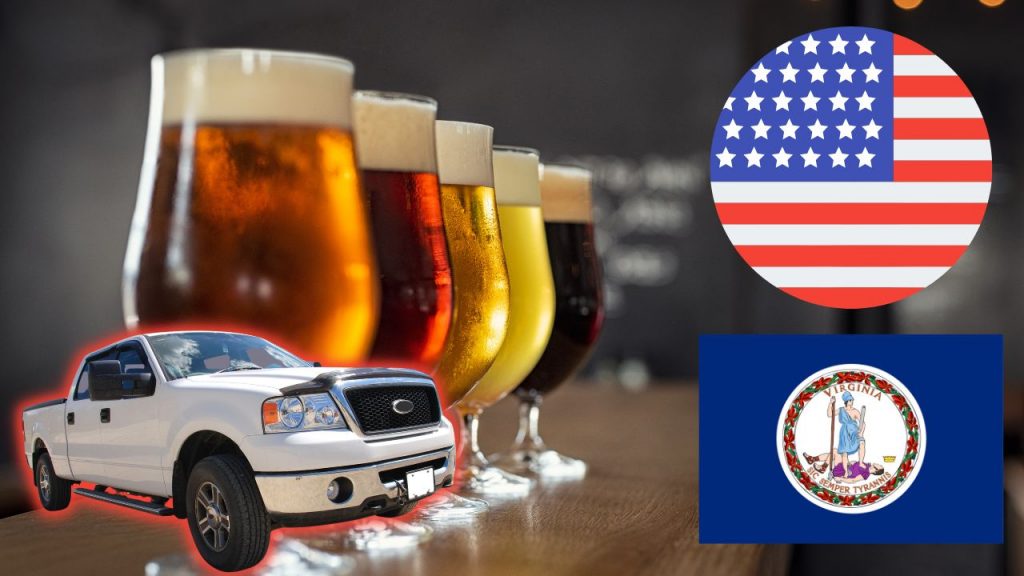
Driving with a high Blood Alcohol Content (BAC) not only puts you and others at risk but can also lead to severe legal consequences in Virginia. Fortunately, there are several responsible alternatives to driving under the influence. Here are some recommendations for safely navigating the situation:
- Utilize Rideshare Apps or Local Taxi Services: One of the most straightforward ways to avoid driving after consuming alcohol is to use a taxi or rideshare app like Uber or Lyft. These services are readily available in most areas and can be a convenient and safe way to get home. In specific locations such as Virginia Beach or Chesapeake, local taxi companies provide reliable services. For example, in Virginia Beach, you can opt for Ebenezer Taxi, and in Chesapeake, American International Taxi Service LLC is a good choice. These local companies offer an alternative to app-based services and support local businesses.
- Order a Designated Driver Service: If you’ve driven to a location and then consumed alcohol, leaving your car behind might not be an appealing option. In such cases, designated driver services offer a solution. These services can safely drive you and your car back home, eliminating the worry of leaving your vehicle unattended overnight. In Virginia Beach, Horseless Carriage Limousine, LLC provides such services, and in Chesapeake, Greenbrier Taxi & Limo – Airport Shuttle can be a go-to option. To find a designated driver service near you, a quick Google search for “designated driver service” along with your city name should provide you with several options.
Both of these alternatives not only help in avoiding the risks associated with driving under the influence but also contribute to a safer community by reducing the likelihood of accidents and DUI offenses. Remember, planning how you’ll get home before you start drinking can make it much easier to avoid making a dangerous decision later in the evening. Whether it’s booking a ride through an app, calling a local taxi company, or arranging for a designated driver service, there are multiple ways to ensure you and others stay safe on the roads of Virginia.
Sticking to DUI Laws in Virginia: Sad Statistics
In Virginia, 34% of the 850 fatal vehicle incidents in 2020 involved drivers with a BAC level over 0.08%. Impaired driving poses a significant risk and should be avoided by using alternatives like Uber, taxis, or designated driver services.
Adherence to Virginia’s DUI laws is essential for reducing drunk driving incidents. Before deciding to drive, consider checking your BAC with a reliable breathalyzer. For detailed information on DUI laws, visit Virginia’s Department of Motor Vehicles’ website.
Remember, even a small amount of alcohol can impair driving abilities. Opting for other transportation methods is safer if you’ve been drinking. Always prioritize safety and inform yourself about DUI regulations to prevent accidents and ensure your and others’ well-being.

